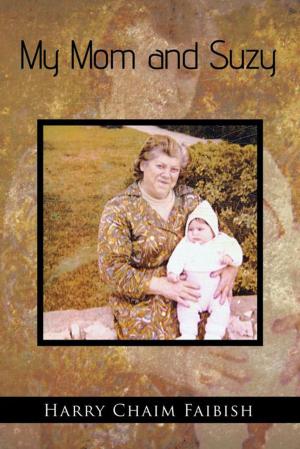| Author: | Virginia Ada Egbujor | ISBN: | 9781524667634 |
| Publisher: | AuthorHouse UK | Publication: | December 29, 2016 |
| Imprint: | AuthorHouse UK | Language: | English |
| Author: | Virginia Ada Egbujor |
| ISBN: | 9781524667634 |
| Publisher: | AuthorHouse UK |
| Publication: | December 29, 2016 |
| Imprint: | AuthorHouse UK |
| Language: | English |
A failed family-arranged marriage in Europe made a young woman, to give up her dreams of living and working in England. She had also dreamt of having and rearing her children in the new country. She returned to her country of origin, when the arrangement failed. She left, despite acquiring a legal right to stay. The rejection by the man she had come to marry, in real terms, precipitated severe isolation for her in a foreign country. She managed to complete a course of study, and it was time to return to what is logically her natural habitat; in other words her comfort zone. On her way home; (in the aircraft taking her home) she did a long subjective and objective soul-searching. She questioned the effect of her upbringing, which may have resulted in her near-nave attitude, low assertive instincts, and the tendency to say yes, even when she felt otherwise. She blamed the Nuns who forced these on her during her formative-teenage years at the Mission Boarding school. The home-coming was celebrated by the meeting of three former boarding school friends at the national event of serving their country. It is customary to give a year of service at the successful completion of young persons tertiary education. The friends had long reflections on what happened at the Boarding School, in their teenage years. It was quite a long analysis, and the friends, now adults, were able to see that in spite of everything they thought went wrong, a lot of good was also achieved. This in effect mitigated against the hardship they suffered as teenagers. At the end of the novel, the protagonist could realise that she had no need to travel to Europe to achieve her dreams (all that I need is here, she thought, in the words of one of her favourite Yuletide songs, by Dina Carrol). This was actualised in the new life she found for herself.
A failed family-arranged marriage in Europe made a young woman, to give up her dreams of living and working in England. She had also dreamt of having and rearing her children in the new country. She returned to her country of origin, when the arrangement failed. She left, despite acquiring a legal right to stay. The rejection by the man she had come to marry, in real terms, precipitated severe isolation for her in a foreign country. She managed to complete a course of study, and it was time to return to what is logically her natural habitat; in other words her comfort zone. On her way home; (in the aircraft taking her home) she did a long subjective and objective soul-searching. She questioned the effect of her upbringing, which may have resulted in her near-nave attitude, low assertive instincts, and the tendency to say yes, even when she felt otherwise. She blamed the Nuns who forced these on her during her formative-teenage years at the Mission Boarding school. The home-coming was celebrated by the meeting of three former boarding school friends at the national event of serving their country. It is customary to give a year of service at the successful completion of young persons tertiary education. The friends had long reflections on what happened at the Boarding School, in their teenage years. It was quite a long analysis, and the friends, now adults, were able to see that in spite of everything they thought went wrong, a lot of good was also achieved. This in effect mitigated against the hardship they suffered as teenagers. At the end of the novel, the protagonist could realise that she had no need to travel to Europe to achieve her dreams (all that I need is here, she thought, in the words of one of her favourite Yuletide songs, by Dina Carrol). This was actualised in the new life she found for herself.















